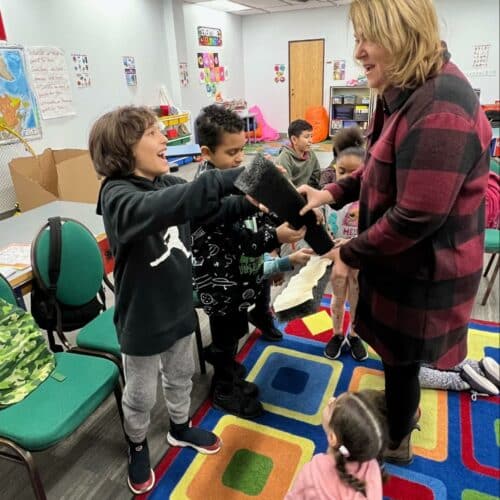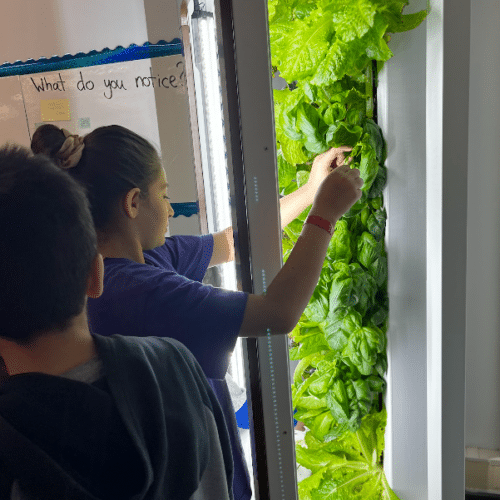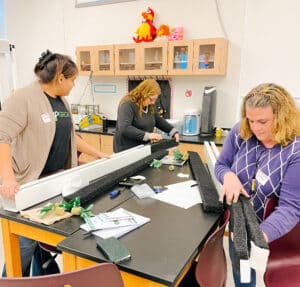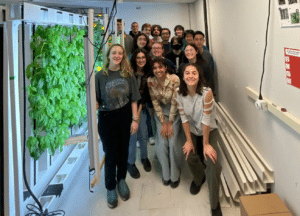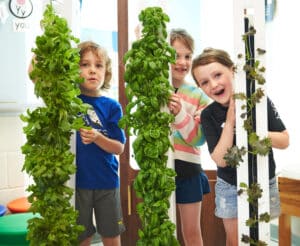This past week the ZipGrow team was invited to a very special “Garden Party,” a celebration of life, growth, and community hosted by students at the Dev Centre Hotel in Cornwall, Ontario.
Dozens of children and several educators were so excited to present their outdoor community garden, ripe with plantings of carrots, tomatoes, zucchini, herbs, and flowers.
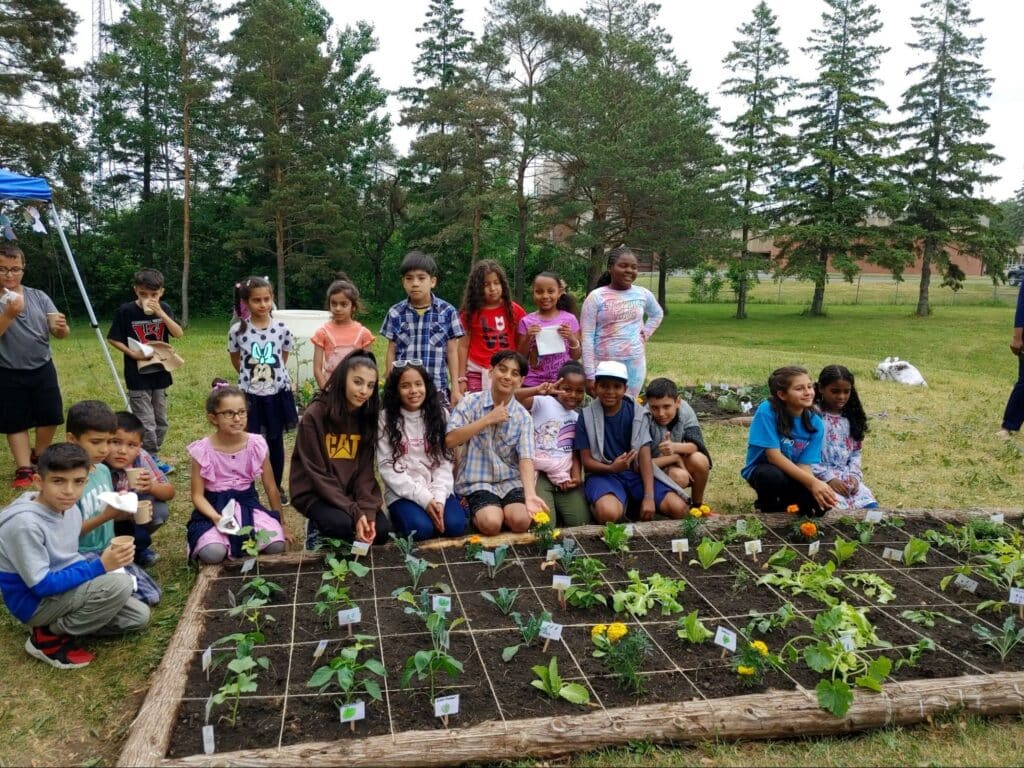
While this gathering was a grand reveal of their efforts to showcase their outdoor garden, it also celebrated a learning journey that started in a classroom with a single seed and a ZipGarden™ indoor hydroponic garden. This project has blossomed into an incredible opportunity to foster connections among children from different corners of the world within a welcoming and inclusive space.
Crystal Seguin, an elementary teacher with the Upper Canada District School Board (UCDSB), serves as the lead educator for a program that supports refugee families in collaboration with Immigration, Refugees and Citizenship Canada (IRCC). The Dev Centre Hotel serves as a transitional point for families arriving in Canada, often being their first landing point as well as the children’s first experience in an English-speaking school.
Crystal and her team provide learning spaces for Students at the Dev Centre Hotel from Kindergarten age through to Grade six, divided among three classrooms. The children come from various countries worldwide, including Afghanistan, Colombia, Venezuela, Türkiye, Ecuador, Peru, Saudi Arabia, Sudan, and Pakistan.
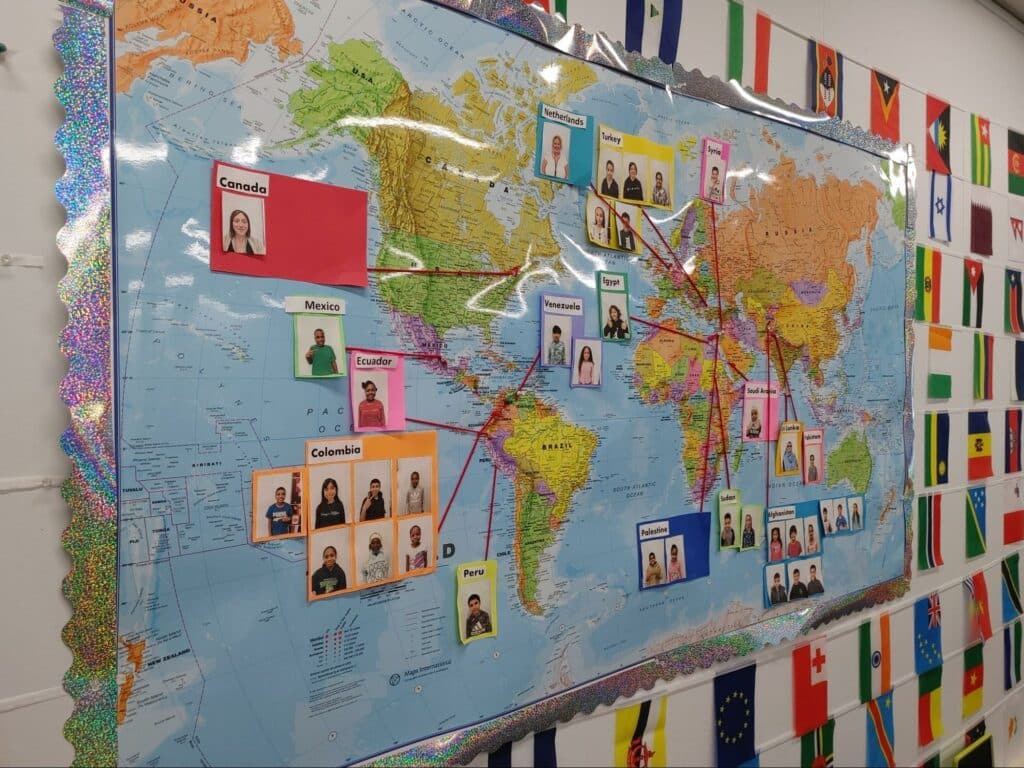
Nurtured by nature
When the program began in January 2023, ZipGrow Inc. donated a ZipGarden™ hydroponic garden for their classroom for hands-on education. As the children learned English together, they also delved into the language of hydroponics, cultivating plants, and fostering a sense of community spirit.
“For some of these children, it’s their first time gardening; for others, they have been gardening in their own countries for years. It’s been their first experience using a hydroponic garden for all of them,” says Crystal. “Kids at the kindergarten level start with the story of the Very Hungry Caterpillar. They come and look at the plants growing, and with many sibling connections here, the learning is spread through all three classrooms”.
Living in the hotel, the families undergo an assessment by the UCDSB to determine their level of English proficiency upon arrival. The program follows a three-step approach, with level three indicating the highest understanding of English. Students below step three join the program at the hotel, which intensively focuses on English and Math skills. Once their skills have improved, they transition to traditional schools in the area.
” We provide the students with the experiences; they lead it into a direction they are engaged in and spark their interest. This hands on-learning is to give the children a problem; they have to solve it, and the teachers are there to guide it.”
Inquisitive minds lead to discovery!
When Crystal initially introduced the ZipGarden™ to her students, she took an inquiry-based approach.
“For the first month of school, we had nothing planted there. I just set it up in a corner and waited to see if the kids had questions, and they didn’t. They were not very inquisitive. Then I put a giant neon green question mark on it and asked, “What do you think this is?”
Given their diverse travel experiences, some students thought it was an airport body scanner, while others guessed a photo booth. Although skeptical about its ability to grow plants from seeds, they were eager to learn more.
“Then I started talking about how plants grew and asked, where is the sun? Where is the soil?”
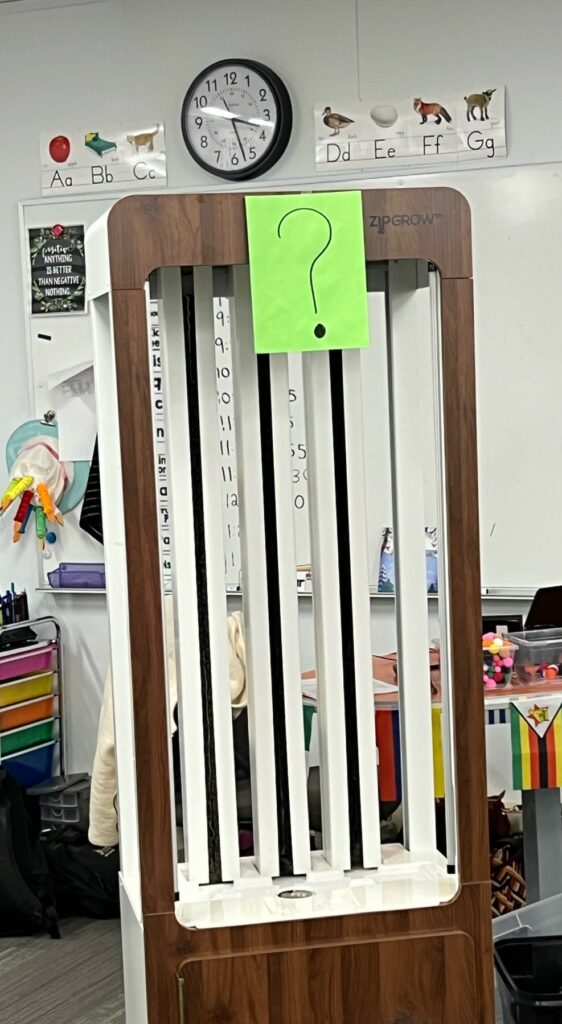
Nurturing Curiosity through Real-World Learning and STEM

Rose MacCulloch, an educator at the same school board, has been using a ZipGarden™ in her primary grade classroom for two years. She came in to do a presentation with the children to help them kick-start their growing.
They talked about plants and what they need, how to plant and harvest the ZipGarden™. Children were also taught how to give the plants nutrient-rich foods and a simple demonstration of how the water recycles through the system to recreate the rain and how the LED lights recreate the sun.

As the students troubleshoot, share ideas, and immerse themselves in hands-on experiences, they not only cultivate life but also enhance their communication skills.
“When you have children with limited English language skills, communication can be a big problem and sometimes lead to a busy classroom.” continues Crystal. “The ZipGarden™ has provided students with a common interest within the classroom; the kids are so engaged; they are all at different stages of English but are all learning hydroponics at the same level. The children encourage each other and build on each other’s experiences and ideas.”


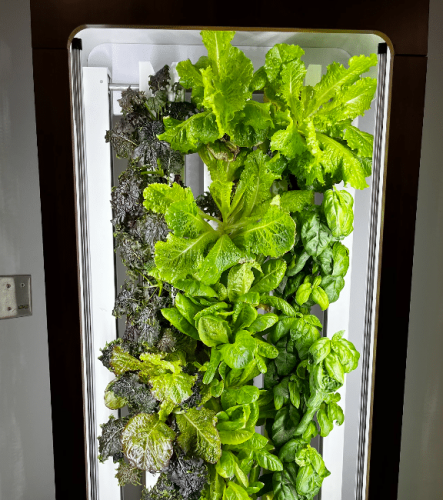
Exploring the boundaries of real-world learning
This student-led approach has led to significant achievements, not only towards the growth of plants but towards the children’s growth of the English language and exploration of bigger projects and community initiatives.
In addition to creating surveys and posters, the children wrote a letter to the hotel to request permission to expand their project to an outdoor garden.
“This project has evolved from seeds in our grow Towers into our outdoor garden and a broader community garden.”
Youth champions
Inspired by their progress, the students with Crystal’s guidance applied for the Empowering Youth for Climate Action Awards, a grant project of Learning for a sustainable Future (LSF), a Canadian charity that has been working for over 30 years to integrate sustainability education into Canada’s school system.
Through this application, older students sharpened their English language skills and Crystal was able to combine their collective responses into a final application.

Their submission was one of three hundred in Canada that reflects how their youth-led project contributes to climate change resilience and increases awareness of locally relevant climate issues in a community.

Team work makes the dream work!
Building a community garden requires more skills than elementary students can provide, but with connections from the UCDSB real world learning team the outdoor community garden became a collaborative effort.
Crystal connected with Nigel Carlisle, an educator from the green industries class at Cornwall Collegiate & Vocational School (CCVS), his students built the framework for the garden and the garden beds. The sod was donated by a local excavation company, Malyon Excavation and they enlisted planting help from Transition Cornwall+ a community group that helps build resilience and sustainability in Cornwall and the surrounding rural areas.
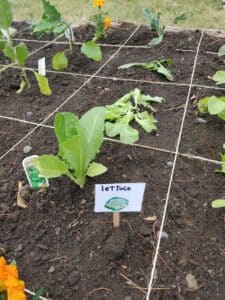
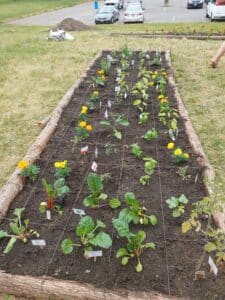
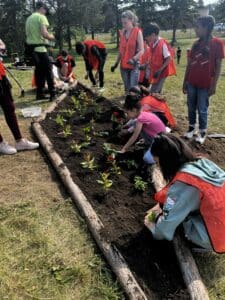
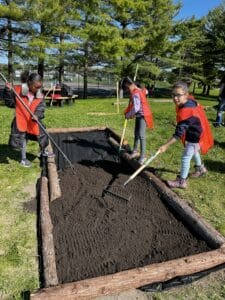
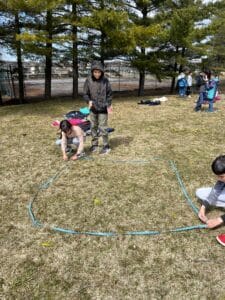
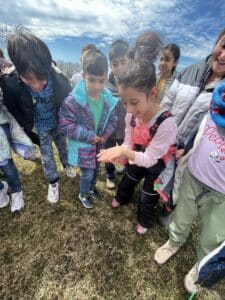
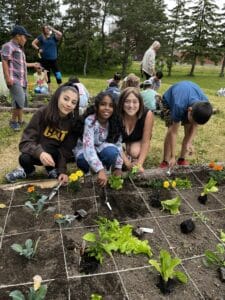
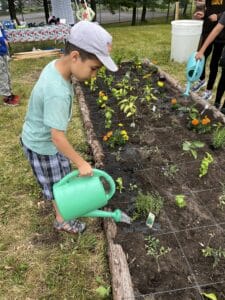

The Garden Party event was a huge success and is an incredible example of how children, educators and community members can come together so seamlessly to support a project that will benefit everyone.It was evident that the children and their parents were so proud.
School’s out for summer soon, but the community garden will live on. In the next school year Crystal plans on starting the plants indoors in the fall to prepare for the outdoor season. “In Canada we have such a short growing season (due to the climate) and in a school setting it can be really difficult to have a community garden. The ZipGarden™ will really help us to grow a community garden through all seasons.”
The ZipGarden™ as a classroom tool - connect, discover, play, grow!
Crystal’s advice for other educators that are interested to bring hydroponic into the classroom;
“Start small, it’s not a chore or something to make more work for teachers. It’s a tool, and an experience for the students. Even if you are only going to grow basil, lettuce and kale, that’s okay. You can start with one Tower. The experience is student-led so the goal is not to make more work for the teacher, the goal is for the students to take on the work themselves. My students are filling the water, adding nutrients, and tracking the progress. This is what’s leading my academic planning and actually makes my job easier; it does the planning for you because the students are driving it.”
how hydroponics can level up learning in schools.




